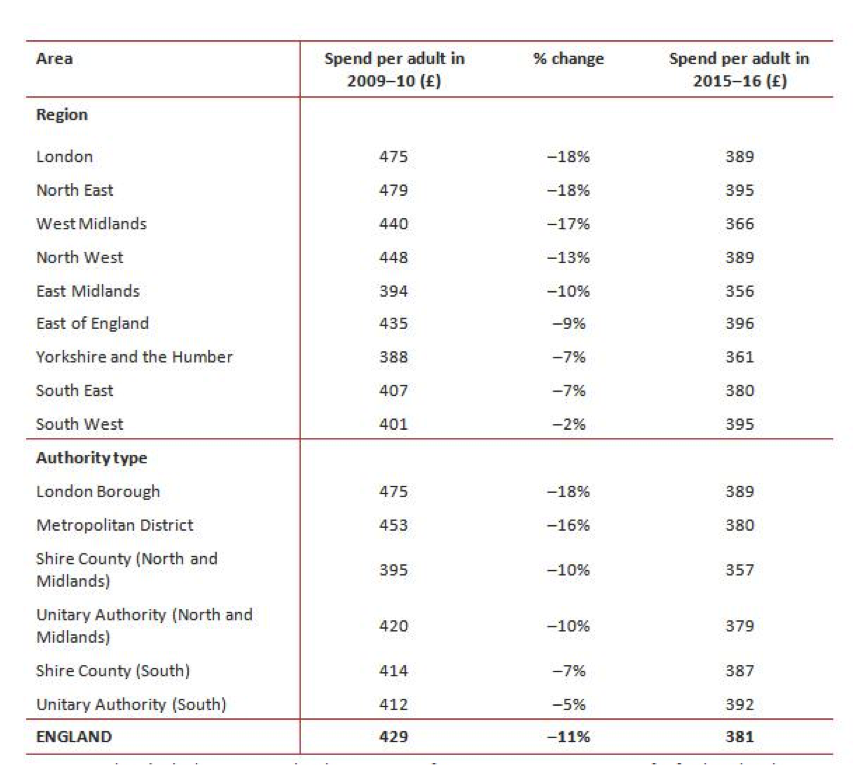The figures reveal that across England, spending by councils on social care per adult resident fell by 11% in real terms between 2009-10 and 2015-16.
Spending fell most in London (18%) and metropolitan districts (16%) covering urban areas like Greater Manchester, Merseyside and Tyneside. Overall the cuts were deeper in the north of England than the south.
Polly Simpson, IFS research economist, said: “The spending cuts analysed in our report have been accompanied by a substantial fall in the number of people receiving social care, down 25% across England, between 2009-10 and 2013-14 alone.
“Cuts have therefore been delivered, in part, by removing care from many people, with those still receiving care presumably those with the highest needs.
“What all this means for the quality of care received, the welfare of those no longer receiving care, and other services like the NHS requires further research to answer.”
Researchers from the think-tank found significant variation in councils’ social care spending. In 2015-16 a tenth of councils spent £325 per adult resident while other areas spent £445 – a difference of almost a third.
David Phillips, associate director at the IFS, said: “One thing that stands out in these figures are the big differences in spending per adult on social care among councils assessed to have very similar spending needs by the government.
“Whether this means spending needs assessments are inaccurate, or reflects differences in available funding or the priority placed on social care relative to other services or council tax levels, is unclear. But it emphasises that the government has got its work cut out in its ‘Fair Funding Review’ of how to measure different councils’ spending needs from 2019 onwards.”
Paul Carey-Kent, policy and technical manager for CIPFA’s health and integration faculty, said the IFS figures highlighted the “dire financial situation facing the sector”.
He added: “Clearly, urgent action needs to be taken to put health and social care on a sustainable footing. And although the Spring Budget saw welcome additional investment, more money in the short term will not be a silver bullet solution.
“One option could be linking NHS and social care funding to a minimum share of GDP, which would encourage preventative investment and aid long-term planning by protecting funding from short-term shifts in the political climate.”
The government has committed £2bn over the next three years for social care and is expected to produce a green paper on a fairer and more sustainable way of funding adult social care in the future – although critics have said the £2bn figure is not enough to plug the gap.




















